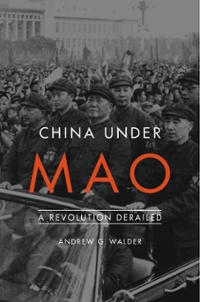Question
In a pure free-market economic system, what happens if the price of a product is too high? a.Supply exceeds demand b.Demand exceeds supply c.Shortages occur
In a pure free-market economic system, what happens if the price of a product is too high?
a.Supply exceeds demand
b.Demand exceeds supply
c.Shortages occur
d.None of the above
2.Which of the following would be a reason for governments to interfere with free markets?
a.To provide national security
b.To ensure public health and safety
c.Government should not be in the business of providing services
d.Both (a) and (b)
3.Using natural capital more efficiently is important to which economic viewpoint?
a.Neoclassical
b.Ecological
c.Malthusian
d.None of the above
4.In calculating the genuine progress indicator, which of the following is added to the gross domestic product?
a.Harmful environmental costs
b.Harmful social costs
c.Benefits in which no money changes hands
e.All of the above
5.From an environmental economics perspective, what does a full-cost price include?
a.Internal costs minus external costs
b.Internal costs plus external costs
c.External costs minus internal costs
d.None of the above
6.Which of the following strategies is "most likely" to contribute to reducing poverty in developing countries?
a.Providing soft loans to developing countries
b.Debt forgiveness for developing countries
c.Privatization of public enterprises
d.All of the above
7. What would the demand and supply curves look like that are associated with a market in which price, supply, and demand are the only factors involved?
a.They would be reciprocal of each other.
b.They would run parallel to each other.
c.They would intersect at the market equilibrium.
d.None of the above.
8. Environmentally sustainable economic development would have the following characteristics:
a.Maximize the flow of resource throughput
b.Minimize end-of-pipe pollution
c.Adopt a precautionary principle
d.All of the above
9.Which Canadian province was the first to introduce a revenue-neutral price (tax) on carbon emissions?
a.Ontario
b.Quebec
c.Manitoba
d.British Columbia
10. Which indicator measures the health of ecosystems, among other things?
a. Genuine progress indicator (GPI)
b.Gross domestic products (GDP)
c.Human Development Index (HDI)
d.Canadian Index of Well-being (CIW)
11. Internalizing external costs would result in:
a.Reduced pollution.
b.Innovations in pollution control and energy efficiency.
c.Increased consumer awareness about the true cost of goods.
d.All of the above.
12. What does cost-benefit analysis do?
a.It compares environment damages to environment benefits.
b.It analyzes data to determine the most economically efficient course of action
c.It unequivocally assesses the real costs of doing business.
d.It provides bottom-line numbers
13. What did the results of most studies of the effects of environmental regulation on U.S. businesses show?
a.environmental regulation discouraged the efficient use of resources
b.environmental regulation decreased profits
c.environmental regulation encouraged developing new innovative products
d.all of the above
14. The appropriate discount rate for protecting an ecologically sensitive habitat is:
a.higher than what is typically used for regular business investments
b.about the same as the rate used for other development projects
c.significantly lower compared to what is used for other development projects
d.CBA cannot be used to assess such project
15. Estimates produced by cost benefit analyses should not be taken for granted because:
a.Not all costs and benefits can be easily or reliably monetized
b.There are significant disagreements regarding what discount rate should be used
c.The results are often manipulated by project proponents or opponents
d.All of the above
16.What are the two key weaknesses of the neoclassical model of the economy as pointed out by Harman
Daly? [0.5x2=1]
a.
b.
17. Which country's Green Plan includes integrated life-cycle management and public awareness programs?
a.France
b.Netherlands
c.Sweden
d.USA
Step by Step Solution
There are 3 Steps involved in it
Step: 1

Get Instant Access to Expert-Tailored Solutions
See step-by-step solutions with expert insights and AI powered tools for academic success
Step: 2

Step: 3

Ace Your Homework with AI
Get the answers you need in no time with our AI-driven, step-by-step assistance
Get Started


